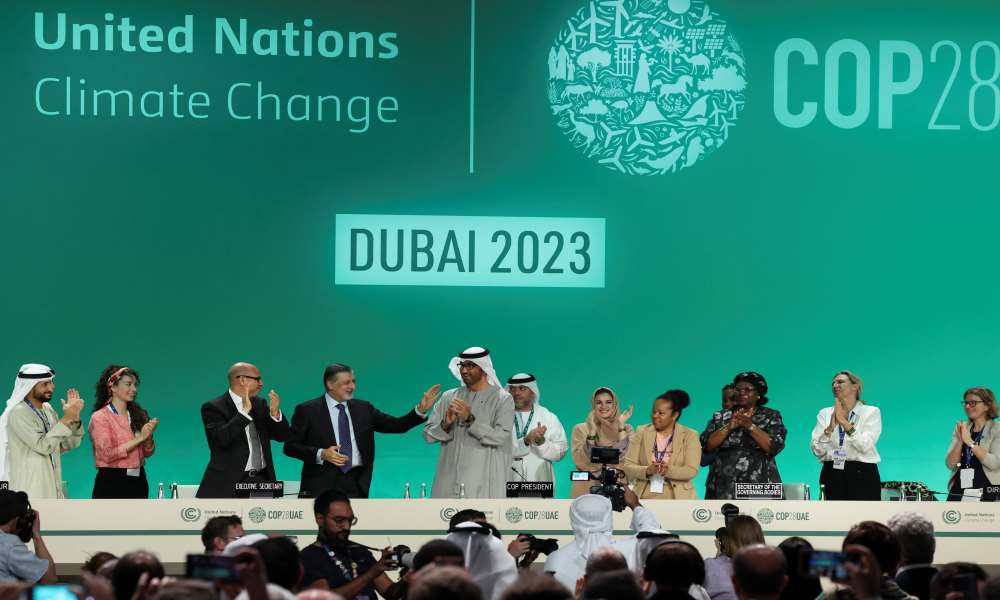Nations strike fossil fuel deal at COP28
‘Historic’ accord
The deal calls for transitioning away from fossil fuels in energy systems to achieve net zero by 2050.
Representatives from nearly 200 countries agreed at the COP28 climate summit yesterday to begin reducing global consumption of fossil fuels to avert the worst of climate change, a first of its kind deal signaling the eventual end of the oil age.The deal struck in Dubai after two weeks of hard-fought negotiations was meant to send a powerful signal to investors and policy-makers that the world is united in its desire to break with fossil fuels, something scientists say is the last best hope to stave off climate catastrophe.
COP28 President Sultan Al Jaber called the deal "historic" but added that its true success would be in its implementation.
"We are what we do, not what we say," he told the crowded plenary at the summit. "We must take the steps necessary to turn this agreement into tangible actions."
Cheering
Several countries cheered the deal for accomplishing something elusive in decades of climate talks.
"It is the first time that the world unites around such a clear text on the need to transition away from fossil fuels," said Norway minister of foreign affairs Espen Barth Eide.
More than 100 countries had lobbied hard for strong language in the COP28 agreement to "phase out" oil, gas and coal use, but came up against powerful opposition from the Saudi Arabia-led oil producer group OPEC, which argued that the world can slash emissions without shunning specific fuels.
That battle pushed the summit a full day into overtime yesterday, and had some observers worried the negotiations would end at an impasse.
Emissions
The deal calls for "transitioning away from fossil fuels in energy systems, in a just, orderly and equitable manner ... so as to achieve net zero by 2050 in keeping with the science."
It also calls for a tripling of renewable energy capacity globally by 2030, speeding up efforts to reduce coal use, and accelerating technologies such as carbon capture and storage that can clean up hard-to-decarbonise industries.
A representative for Saudi Arabia welcomed the deal, saying it would help the world limit global warming to the targeted 1.5 degrees Celsius over pre-industrial times set in the 2015 Paris deal, but repeated the oil producer's stance that tackling climate change was about reducing emissions.
"We must use every opportunity to reduce emissions regardless of the source," he said.
Several other oil producer countries, including the summit host UAE, had advocated for a role for carbon capture in the pact. Critics say the technology remains expensive and unproven at scale, and argue it is a false flag to justify continued drilling.
Former US vice president Al Gore also welcomed the deal, but said: "The influence of petrostates is still evident in the half measures and loopholes included in the final agreement."
Now that the deal is struck, countries are responsible for delivering through national policies and investments. - Reuters



